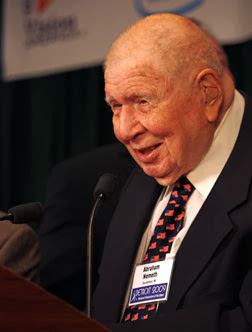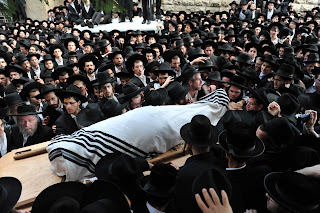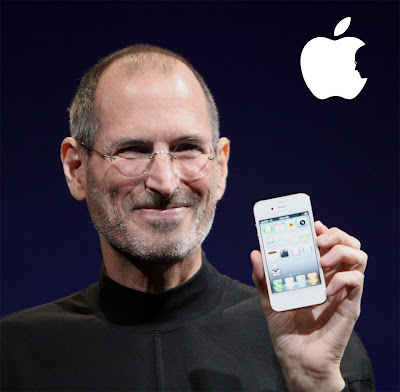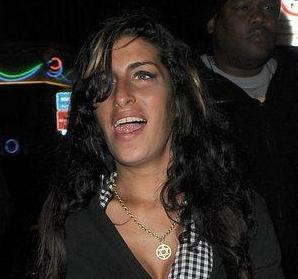Dear Eden,
When I heard the horrible news yesterday evening about your father’s tragic death I immediately thought of you. I then spent the entire 25 hours of Shabbat asking God how this could happen and hugging my children a few extra times than I ordinarily do.
I can’t stop thinking of the first time I met you because, whether you realized it or not, you taught me so much about your father. And about life. It was in September 2010. You were a student in my class at Temple Israel Hebrew High School. It was the first time I had ever taught a high school class about blogging and I was eager to see each teen’s creativity. The first session was an introduction to blogging and I recall you weren’t there.
In the second session of the course all twenty teens set up their new blogs and began to write their first post with some excitement (or as much excitement as teens show in a Hebrew High School class). You sat in front of your computer with nothing on the screen for several minutes. When I came over you explained that you had no idea what to write about or even what the focus of your blog should be. It was then that I said one of the stupidest things I have ever said to anyone. “You’re Jeff Zaslow’s daughter and you have writer’s block?” I wished I could take those words back. Fortunately, you laughed.
 |
| Jeff Zaslow (Photo by Eden Zaslow) |
I told you the story of how I first met your parents. Ironically, it had been at my own Hebrew High School twenty years earlier. Your mom and dad came to Adat Shalom Synagogue to speak to the high school students about their careers in the media. Of course I knew your mom from the television news, but I was so intrigued with your dad’s job as an advice columnist for the Chicago Sun-Times. He read some of the more humorous questions he had received over the years. And of course his humorous responses.
You and I talked for a while and I asked what you enjoy doing. You told me that you enjoyed photography. I told you it would be a great idea if your blog was a collection of your photos. Since you didn’t have any of your photographs on that computer’s hard drive you decided to make your blog about something else. I told you that I had recently been asked to start a blog for Detroit’s Community Next about Jewish celebrities. You thought that sounded like a great idea and decided to focus your blog on Jewish celebrities and Detroit’s budding film industry. In your opening blog post you wrote:
Hello, I am Eden Zaslow, a student at Temple Israel Monday night school in West Bloomfield, Michigan. In my blog I will be talking about Jewish celebrities and the new or soon to be new LA: Detroit. I will be posting facts and gossip about Jews and about the movies being filmed in Detroit. Enjoy!
The next time we had class you posted about how Michigan’s current race for governor would affect Detroit’s film industry. You correctly predicted that if Rick Snyder became Michigan’s next governor it would jeopardize the film industry. While you didn’t continue that blog, I know you have continued your photography. In fact, you might be the youngest photographer to have a photo credit in People Magazine. I know how proud your dad was that your photo of him was used alongside the review of his last book The Magic Room.
 |
| Eden and Jeffrey Zaslow |
I know I’m not the first to tell you this, but The Magic Room was your dad’s last lecture. He helped make the words “last lecture” into a household term when he helped Prof. Randy Pausch leave his legacy to the world. The Magic Room was your dad’s legacy. He wrote the book for you and your two sisters. He wanted to share how special the father-daughter relationship is, and in so doing he helped so many parents do their most important job a little better. Having my own daughter, I’m grateful for this beautiful book.
This morning in synagogues all over the world, the Jewish people heard about Yitro’s contributions to the Jewish people. Yitro was a Medianite priest and Moses’ father-in-law. But he was also an advice columnist of sorts like your dad was at the Sun-Times. Yitro gave very important and useful advice to Moses that helped him be a better leader. While the Torah doesn’t mention this fact, Yitro’s advice also helped Moses be a better father and husband. Your dad, Jeffrey Zaslow, was a modern-day Yitro. Whether it was following in the footsteps of Ann Landers as an actual advice columnist or writing brilliant books like The Girls from Ames and The Magic Room, or helping our heroes like Prof. Randy Pausch, Pilot Sully Sullenberger, and Rep. Gaby Giffords write their memoirs, your dad shared his wisdom with millions. The number of languages his books were translated into is a true testament to the far reach his books had.
I wish I could give you some explanation for the tragic accident that took your father’s life before he could see his own daughters trying on their wedding gowns in front of the mirrors of the Magic Room. I wish I could share a prayer or a psalm or an inspirational quote that could take away some of the pain you and your family are feeling right now. There is no explanation. It is shocking. It is horrific.
 |
| Jeff Zaslow (Photo by Eden Zaslow) |
Eden, you taught me an important lesson and one I won’t soon forget. You taught me that we are not our parents. Just because your father was a prolific writer who was publishing a best seller each year, doesn’t mean that his 15-year-old daughter shouldn’t struggle in coming up with a theme for her new blog. Maybe writing won’t be your thing. Maybe it will be photography. Or a million other things. No matter where you place your talents, I know one thing is for certain. Your father will be so proud of you. He will be looking down at his daughters and beaming with pride.
Please know that your father left an indelible mark on our world. Through the gifts of his wit and wisdom, his keen ability to listen to others, his ability to tell stories, and his genuine desire to help others, Jeffrey Zaslow will long be remembered and cherished. But more important than that, he was a mensch and a wonderful and caring father.
May your father’s memory be for blessings.
(c) Rabbi Jason Miller | http://blog.rabbijason.com | Twitter: @RabbiJason | facebook.com/rabbijasonmiller












